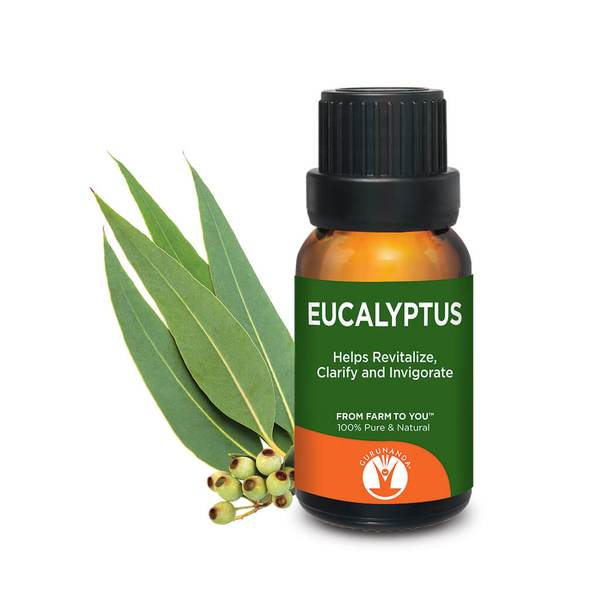If you suffer from chronic sinus issues, you’ve most likely tried a range of remedies and medications in search of relief. Well you’re not alone; as physicians have reported what is often called “sinusitis” as one of the most commonly treated conditions. What may start as a runny nose or congestion often turns into intense pressure focused in the eyes, nose and forehead and radiating into the ears, teeth or jaws and down the neck. Sinusitis is also often accompanied by headaches, nausea and dizzy spells. Essential oils are a popular and effective solution to help treat sinus pain and pressure. A few of the best essential oils for sinus pain are peppermint, eucalyptus and tea tree essential oils.
Peppermint Essential Oil
Peppermint oil is one of the most common essential oils used for sinus pressure. Menthol is a chemical component in the peppermint plant, which is commonly used for colds and sinuses. Peppermint oil is derived from the peppermint plant and is a concentrated, potent form of the plant with many medicinal properties. It has been used for thousands of years as a remedy for complaints such as muscle tension, headaches and sinus pressure due to its antiseptic, antifungal and anti-inflammatory properties. Peppermint oil can be inhaled using an essential oil diffuser or simply by placing a drop in your hands, cupping your hands over your nose and inhaling deeply. Another way to use peppermint oil is by topical application directly over the sinuses, forehead, jaws and other painful areas to open the sinus cavities. It’s important to dilute peppermint oil with a carrier oil such as coconut oil before applying it to the skin.
Tea Tree Essential Oil
Tea tree oil is derived from the tea tree plant, also known as the Melaleuca plant. It was originally discovered by the aboriginals of Australia, and has been used for thousands of years as an effective treatment for colds, cough, congestion and sinus pain. It is highly anti-fungal and has anti-inflammatory and anti-bacterial properties. Tea tree oil can be used through inhalation or topical application methods to promote clear passageways and reduce inflammation in the nasal and sinus cavities. An easy and effective way to use tea tree oil is by adding 10-15 drops to a bowl of boiling water, applying a towel over the head and inhaling the vapor for 5-10 minutes.
Eucalyptus Essential Oil
Eucalyptus comes from the same family as the tea tree, and is another remedy used by aboriginals, as well as in modern medicine. Like peppermint, eucalyptus contains menthol, which is a common treatment used to alleviate cold and sinus symptoms such as blocked airways, cough, sore throat and congestion. Due to its anti-inflammatory, antiviral and analgesic properties, eucalyptus is a great choice for sinus pain. Eucalyptus can be used aromatically or topically, and makes a great chest rub mixed with a carrier oil such as coconut or olive oil.
One great way to use eucalyptus for sinus pain is to make DIY frozen eucalyptus towels. Simply add 15-20 drops of eucalyptus essential oil to a bowl of cool water. Dip each hand towel in the bowl and squeeze out the excess water. Roll up and place in the freezer until you’re ready to use. Apply over the face while lying down to relieve sinus pressure and open the airways.
Essential Oils and Sinus Drainage
Essential oils can be used to manually drain the sinuses. Choose one or more of the essential oils listed above (eucalyptus and peppermint are a great combo) and add a few drops of each essential oil to a carrier oil in the palm of your hand. Rub your hands together and begin applying firm pressure starting at the forehead, down the bridge of the nose and over the sinuses toward the ears, then back across the sinus cavity and up the nose to the forehead. Repeat several times to alleviate pressure and promote sinus drainage.
Many people reach for the painkillers and over the counter sinus relief products as soon as symptoms begin, but there are many natural remedies that can be very effective at alleviating pain and symptoms associated with the sinuses. Before beginning any essential oil for sinus pain treatment, make sure to ask your physician for advice and rule out any sensitivities, allergies or contraindications with current medications. Once approved by a doctor, essential oils can be a natural, safe and affordable option for sinus relief.


